
The Unclogging of ‘Ever Given,’ and a Flood of Memes
On Monday, the 1,300-ish-ft container ship Ever Given was finally dislodged after some six days of blocking a narrow section of the Suez Canal, which is a major artery of global commerce. The Ever Given clog, by one of the largest ships in the world, cost almost $10 billion a day in marine traffic lost, reportedly will have ripple effects on supply chains for months to come, and put global shipping into the public spotlight.
When, at first, what appeared to be a single excavator and then a single bulldozer were sent in to dig out the building-sized behemoth — offering a visual contrast between the size of the problem and the tiny, near-infinitesimal speck of the solution on offer — the metaphors about deep-rooted struggles flooded the internet.
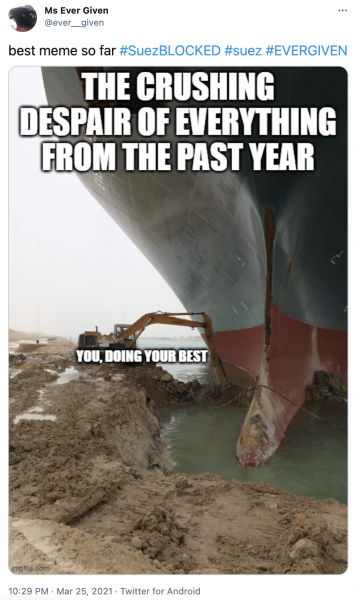
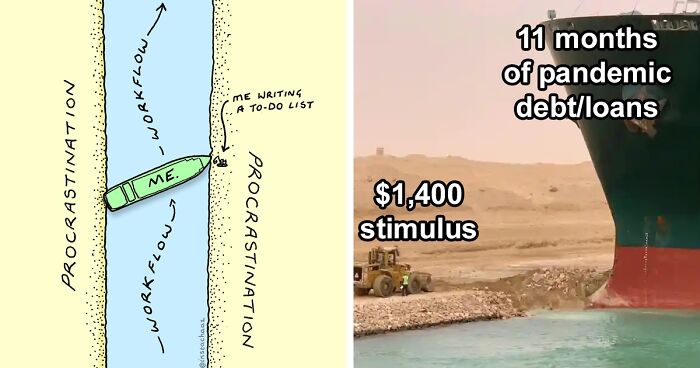

The Ever Given even made it onto The Late Show with Stephen Colbert.
“You landlubbers out there probably learned about this story from various shore-based news outlets,” said Colbert, who is a sailor hailing from South Carolina. “But I’m a man of the sea; I’m a salty dog, so I’ve been tracking this briny pickle from the moment it began on my MarineTraffic app.” Colbert pulled out his phone, and the Suez jam was put on the screen, followed by the following image:
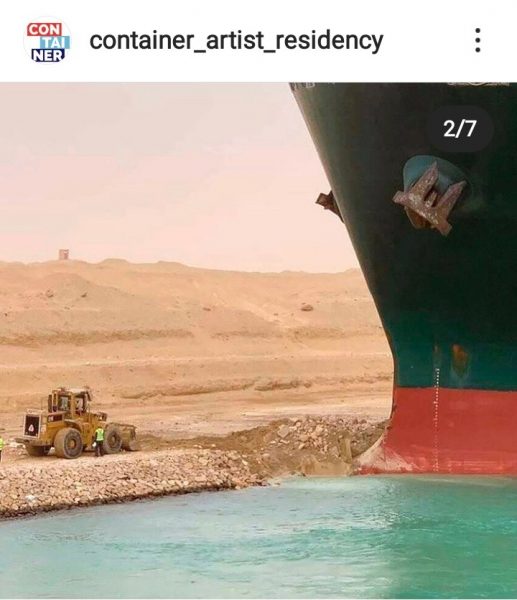
“Authorities are trying their best to dislodge the vessel — here’s the full fleet of … one bulldozer … trying to dig it out. C’mon guys, couldn’t you have sent something smaller? Maybe an old man with a grapefruit spoon or a single prairie dog with tennis elbow?”
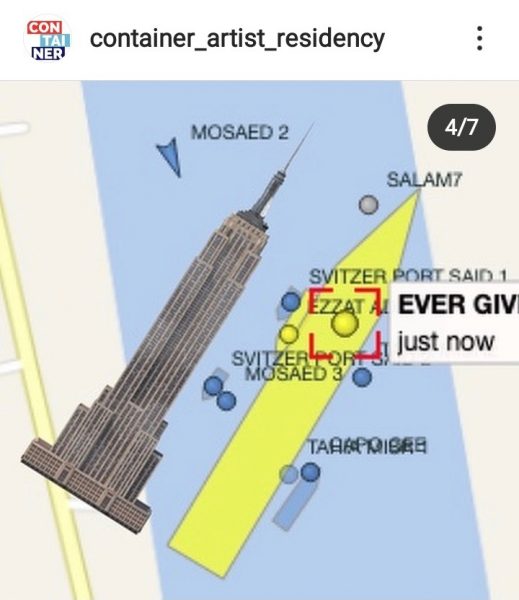
Did the unexpected canal-blocking by the Ever Given cause a worldwide mini-discussion, moment of pause, or collective shoulder-shrugging over globalism?
“The Suez Canal is not just any waterway,” wrote the New York Times. “It is a vital channel linking the factories of Asia to the affluent customers of Europe, as well as a major conduit for oil. The fact that one mishap could sow fresh chaos from Los Angeles to Rotterdam to Shanghai underscored the extent to which modern commerce has come to revolve around truly global supply chains.”
The Times explained that the Ever Given jam revealed the pitfalls of “so-called just-in-time manufacturing,” where goods are ordered and delivered on demand via global shipping, rather than investments being made in stockpiling goods in warehouses. “The embrace of this idea has delivered no less than a revolution to major industries. It has also yielded a bonanza for corporate executives and other shareholders: Money not spent filling warehouses with unneeded auto parts is, at least in part, money that can be given to shareholders in the form of dividends.”

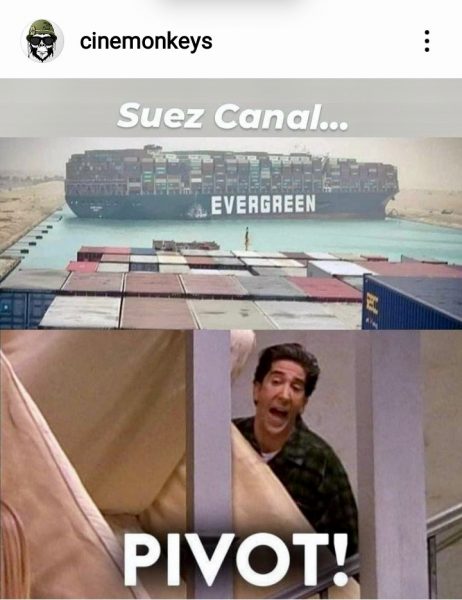

The Times went on to say, “Some experts have warned for years that short-term shareholder interests have eclipsed prudent management in prompting companies to skimp on stockpiling goods. ‘As we become more interdependent, we are even more subject to the fragilities that arise, and they are always unpredictable,’ said Ian Goldin, a professor of globalization at Oxford University.”

According to Bloomberg News, “The Ever Given leaves in its wake several weeks or months of disruptions across a world economy where the pandemic revealed both the sturdy backbone of global trade and an Achilles’ heel.”
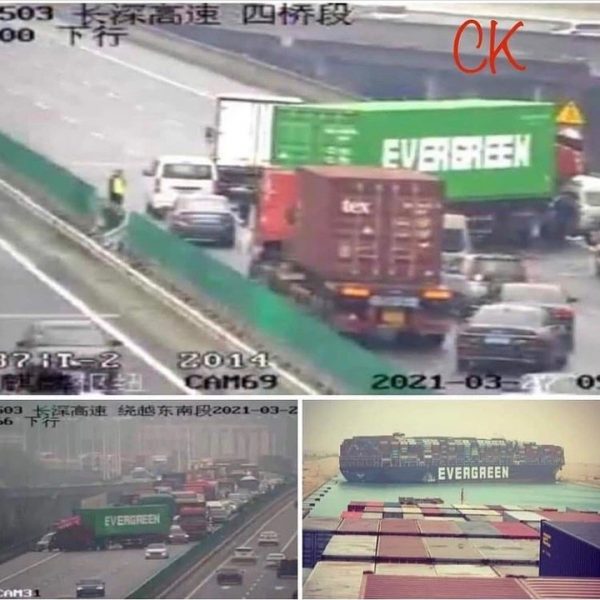
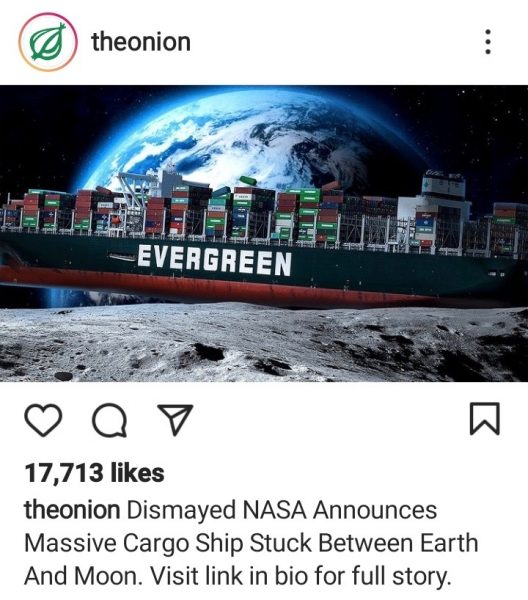
With all this talk about the “fragility of the global supply chain,” will the grounding of Ever Given lead to any significant changes in the current system? Not likely.
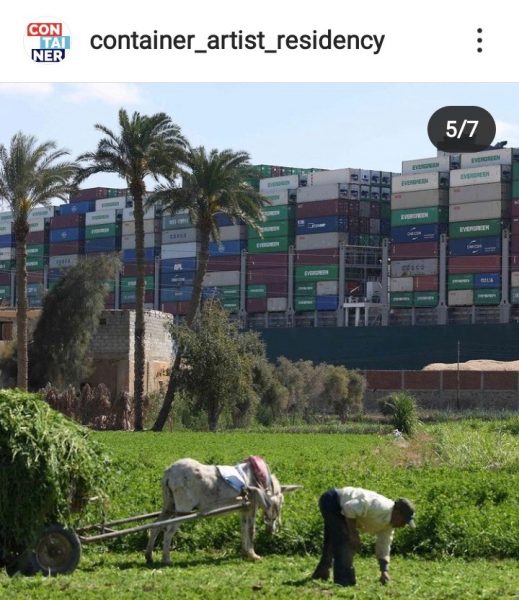
“Korea Shipbuilding & Offshore Engineering and Samsung Heavy Industries — two of the world’s three biggest shipbuilders — announced they’d won orders worth a combined $3.45 trillion … to build 25 container vessels that are all longer than the Eiffel Tower,” according to Bloomberg. “The ships will be delivered by 2025.”
